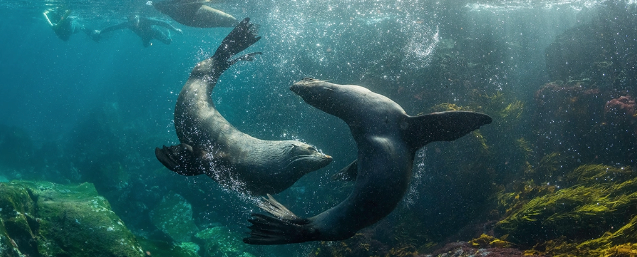||| FROM SCIENCE ALERT |||
The ocean covers most of our planet’s surface, accounts for the majority of our oxygen production, and provides a significant amount of resources by way of food, minerals, and energy.
Yet our oceans are shockingly underrepresented when it comes to environmental conventions on an international scale.
The deep blue yonder is often reduced to footnotes and passing mentions in international accords that aim to unite our world in sustainable practices.
To move beyond token efforts and develop guidelines that truly ensure future generations can continue to reap the benefits of functioning marine systems, our relationship with the oceans needs to change on a fundamental level.
In a recent editorial published in PLOS Biology, a team of researchers lays out their argument for a new framework that aims to do just that.
“Maintaining the status quo of environmental law equates to the legalized destruction of Nature,” states the commentary, written by ocean policy researchers Michelle Bender and Rachel Bustamante from the US-based Earth Law Center, and water scientist Kelsey Leonard from the University of Waterloo in Canada.
“International law needs to evolve to reflect the Ocean’s inherent rights to exist, flourish, and regenerate. Ocean health is human health.”
That capitalization of Nature is no typo, reflecting a philosophical approach that elevates our natural environment to a position of equality with humanity rather than a separate domain of exploitation.
This “mutual enhancement” is a key part of a set of principles encompassed by the emerging field of Earth law – an umbrella term for initiatives that aim to recognize the interdependence that exists between humans and their environment via our institutions and laws.
One such legal framework that’s immediately recognizable to most is the right to exist. For most humans, it’s an ethical principle that underpins the development of laws around the world.
According to Earth law, Rights of Nature (one legal framework within the body of Earth law) recognize nature as having value simply because of its own intrinsic worth. Not by virtue of what it can provide as property or a resource ripe for exploitation, but simply as a “living being” in its own right.
“Building upon Earth law and Rights of Nature understandings, Ocean-centered governance recognizes the Ocean as a living entity, advancing law, policy, and institutional action that centers the needs of the Ocean in decision-making,” the authors write.
**If you are reading theOrcasonian for free, thank your fellow islanders. If you would like to support theOrcasonian CLICK HERE to set your modestly-priced, voluntary subscription. Otherwise, no worries; we’re happy to share with you.**








Why limit it to the oceans? In the Gaia hypothesis, James Lovelock and Lynn Margulis postulated that the entire earth should be considered a living, breathing organism.